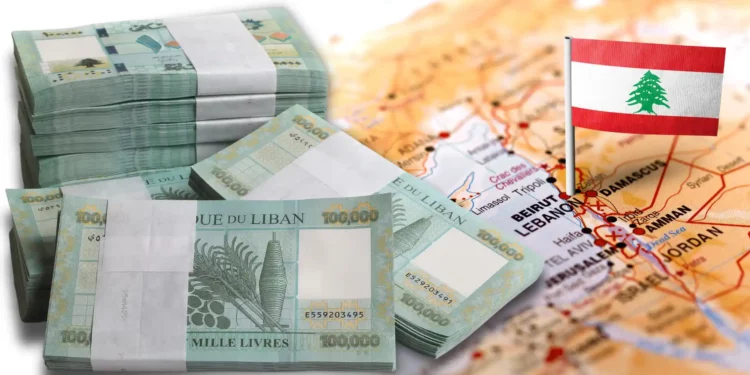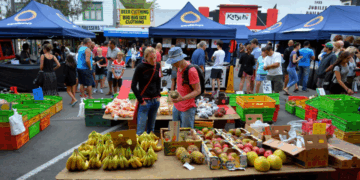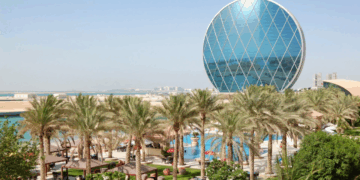Lebanon’s poor don’t profit from cash coming into the nation, they are left to fight for themselves
Lebanon‘s people have been experiencing a persistent economic crisis since 2019. The pound dove to under 10% of its worth before the crisis, and savings have vanished both in terms of actual deposits as banks report that they have no money to deliver, and that’s just the tip of the iceberg. The majority of individuals in Lebanon are stressing over just keeping themselves alive. Around 80% of the populace is beneath the poverty line and 36 percent is below the “extreme poverty line”, living on under $2.15 per day.
A new arrangement worth 1 billion euros ($1.06bn) with the European Union might have been viewed as a gift from heaven in such conditions, yet it has brought to the front many more issues.
EU aid throughout recent years is not simply to help Lebanon’s economy. Rather, they are for the most part to guarantee the prosperity of host networks and Syrian evacuees, as European Commission President Ursula von der Leyen said. In the hope that refugees will be discouraged from traveling to Europe, nearly three-quarters of the package is designated for that. Millions of Syrian refugees who have fled their country’s 13-year war have arrived in Lebanon.
A public campaign supported by mainstream Lebanese media and state figures has fueled hostility toward refugees as more Lebanese found their lives devastated by the economic crisis. The EU aid was firmly scrutinized by human rights workers and experts, who said the arrangement compensates the state’s monetary mismanagement and abuse of the Syrian people group.
In what the Lebanese government refers to as a “voluntary return” program, more than 300 Syrians have either returned or been returned to their home country.
Rights groups, on the other hand, have criticized the initiative because of the 13,000 forced deportations of Syrians that took place in 2023 alone, the violence against refugees in Lebanon, and the ongoing conflict in Syria itself.
Ramzi Kaiss, a researcher in the Middle East and North Africa Division at the right group, told Al Jazeera that “Human Rights Watch has documented the summary deportation of thousands of Syrians in 2023 and [the] deportation of opposition activists and army defectors this year.
Among those recorded removals were Syrians who were escaping Lebanon via ocean and got back to Lebanon by the Lebanese military and were consequently expelled. It is shameful that the EU would provide funding to support such conduct, he added.
Poverty and Starvation
The assistance is ineffective because of yet another persistent problem in Lebanon. “The biggest problem is the total absence of accountability,” Karim Emile Bitar, professor of international relations at Saint Joseph’s University in Beirut, told Al Jazeera. “Even the Lebanese minister of finance acknowledged that local corruption could be a major [issue].”
The country’s poor don’t profit from cash coming into the nation, they are left to fight for themselves. Lebanon’s Parliament passed another spending plan in January pointed toward cutting its deficit, which the World Bank says is 12.8 percent of its GDP. According to economists, the new budget impacted the poorest and most vulnerable the most, increasing the value-added tax while reducing progressive taxes on investments, real estate, and capital gains.
Just the same old thing
Establishments like the World Bank have been pushing Lebanon’s chiefs to acquaint changes with increment straightforwardness, incorporation, and responsibility as a condition for delivering aid packages.
The International Monetary Fund has been sitting on a $3bn bundle that would, in principle, help the state’s many closed bankrupt, deadened establishments to get running once again.
According to Leila Dagher and Sumru Altug, writing for the Georgetown Journal of International Affairs, Lebanon’s political elite has avoided implementing reforms out of concern that transparency might reveal corruption among leaders who are focused on safeguarding their business monopolies.
Some observers say that the alternative has been to wait and hope that the international community will eventually decide that it is in their best interest to support even a failing government as long as it helps keep some refugees out.
The EU has given Lebanon multiple billion euros ($3.3bn) beginning around 2011, a big part of which was to assist with the aftermath of the conflict in Syria – cash that should assist evacuees with becoming independent and help the Lebanese host community.
Humanitarian aid to the most vulnerable people in Lebanon, including refugees and the poor, has received an additional 860 million euros, or $934 million. Assumptions that the most recent EU bundle will have an alternate effect this time around are ridiculous, investigators said.
Game of Power
It is generally accepted that corrupt politicians, businessmen, and bankers have received a significant portion of the funding that has been provided to Lebanon by foreign governments and other international organizations since 2011.
However, this has not stopped the EU from gaining a greater understanding of the Lebanese ruling class and prioritizing its political needs. Cypriot President Nikos Christodoulides has been organizing with caretaker Lebanese Prime Minister Najib Mikati over migration as the economy pushes more Syrians and Lebanese to endeavor the sea crossing to Europe.
Von der Leyen has put a lot of emphasis on migration during her time as president of the European Commission. She has made deals with countries in North Africa to cut down on the number of refugees coming to Europe, despite being heavily criticized by rights groups and some EU member states.

















